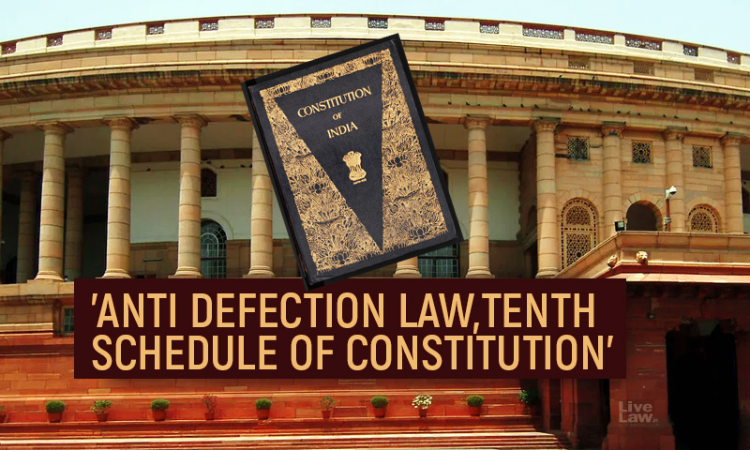Anti-Defection Law : What Amounts To Voluntary Giving Up Of Party Membership Under Tenth Schedule Of Constitution?
Viswajith Anand
19 July 2020 8:30 AM IST

Next Story
19 July 2020 8:30 AM IST
Anti-defection law under the Tenth Schedule of the Constitution has once again come to the fore with the political crisis that has rocked Rajasthan in the wake of the rebellion led by a camp of Congress MLAs led by Sachin Pilot.The issue has now reached the High Court of Rajasthan, after the Pilot camp approached it challenging the disqualification notices issued by the Speaker.The...
